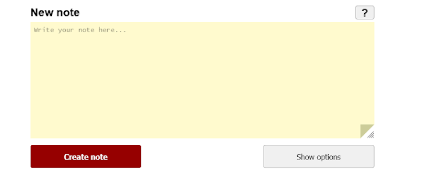
Analyzing the Market Potential of UPREIT Companies in 2023
A 1031 exchange is a taxes-deferred exchange that lets you defer money profits income taxes in the transaction of an purchase residence by reinvesting the sale cash in to a comparable residence. But, the 1031 exchange method is complex and needs meticulous planning and setup. One of many key components of a successful 1031 exchange is using a qualified intermediary (QI). On this page, we are going to explore how the qualified intermediary facilitates a 1031 exchange and why it is very important guarantee an even and certified financial transaction.
1. What is a Qualified Intermediary?
A qualified intermediary is a third-celebration firm that facilitates a 1031 exchange upreit companies by retaining the profits from your selling of your relinquished residence and using those money to buy a like-form house. The IRS requires a QI mainly because they cannot have any relationship with either the consumer or the owner. The QI makes certain the funds are maintained apart from the taxpayer’s credit accounts until they can be reinvested in to a new property.
2. Function in the Qualified Intermediary
A QI takes on an important role within a 1031 exchange mainly because they work as an intermediary involving the purchaser and retailer. They prepare the 1031 exchange paperwork, assist in the transaction of the relinquished residence, and be sure that the retailer does not obtain the exchange earnings. The QI also helps establish alternative attributes, conduct research, and prepare the shutting down paperwork for the purchase of the newest residence.
3. Benefits of Using a Qualified Intermediary
There are various advantages to by using a QI to get a 1031 exchange. For starters, a QI helps to ensure that the exchange is in accordance with all IRS recommendations. They have the skills to perform due diligence on both the relinquished and alternative properties, making certain they fulfill the 1031 exchange standards. Secondly, a QI can help determine ideal alternative components, conserving the taxpayer money and time. Ultimately, by using a QI permits taxpayers to target their present organization and private passions without being concerned concerning the transaction’s complexities.
4. Drawbacks of Not Utilizing a Qualified Intermediary
In case a house owner prefers not to utilize a QI inside a 1031 exchange, they are regarded as using constructive receipt from the purchase earnings, producing the transaction not any longer tax-deferred. Without a QI, the taxpayer is mainly responsible for identifying the replacing residence within 45 days, and there is not any promise the vendor will not likely have the profits just before the shutting down over a new residence. By using a QI is considered the most reputable and established way to make sure a successful 1031 exchange.
5. Choosing the Right Qualified Intermediary
Choosing the right QI is crucial to make sure a prosperous and compliant 1031 exchange. Our recommendation is that taxpayers investigation and compare QIs to obtain the right one for them. Think about their experience, location, and fees to make a knowledgeable choice. Locate a QI containing streamlined their functions, features a verified reputation of successful exchanges, and has crystal clear conversation and visibility.
In short:
In summary, a qualified intermediary has an important role in assisting a 1031 exchange. They ensure that the purchase complies with Internal revenue service recommendations, aids in the homework approach, pinpoints prospective alternative attributes, and prepares the necessary documents for both the selling of your relinquished residence and purchasing the like-kind house. Whether you’re the first-time customer or did numerous 1031 swaps, by using a qualified intermediary is the easiest way to guarantee a smooth and successful deal. Make sure you study and evaluate QIs to obtain the best for you.




